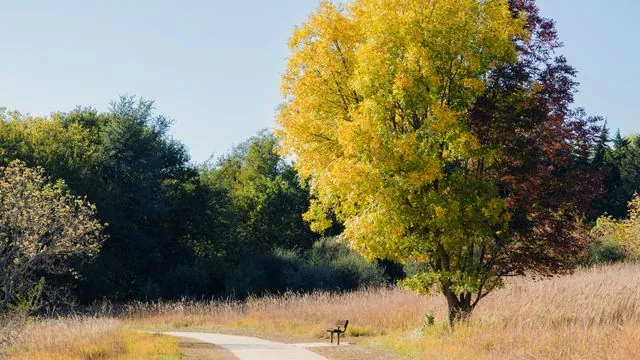
Ash Trees in Britain Evolve Resistance Against Devastating Dieback Disease!
2025-06-30
Author: Jacob
A Glimmer of Hope for British Ash Trees
In an exciting breakthrough, scientists from the Royal Botanic Gardens at Kew and Queen Mary University of London have unveiled a remarkable phenomenon: a new generation of ash trees sprouting in British woodlands is showing surprising resistance to the deadly ash dieback disease.
Natural Selection at Work
This study, recently published in the prestigious journal *Science*, reveals that natural selection is actively reshaping the DNA of ash trees across thousands of locations, leading to enhanced resistance in younger trees. This remarkable finding not only inspires hope for the survival of ash trees in the UK but also highlights a powerful illustration of Darwin's evolutionary theory.
Ash dieback, a grave threat to the iconic trees, is caused by the fungus *Hymenoscyphus fraxineus* and has wreaked havoc since its arrival in Britain in 2012, leading to dire predictions that as many as 85% of ash trees could be lost. Until now, none have been found to possess complete immunity.
A Battle Against the Fungus
Researchers conducted a detailed comparison of the DNA from ash trees predating and succeeding the fungal invasion. They detected subtle changes in the genetic makeup linked to tree health, confirming that the new generation is indeed more resistant than its predecessors. This revelation restores hope for the longevity of ash trees.
Nature’s Resilience Demonstrated
Professor Richard Nichols, a leading expert in Evolutionary Genetics, remarked, "While the tragedy faced by these trees has troubled many, it has sparked significant scientific insight. We’ve discovered that countless genes are now playing a role in the trees' resilience against the fungus, a phenomenon made possible by the sudden onslaught of such a serious disease and the robust reproductive capabilities of mature trees."
Future Prospects: Can Nature Thrive Alone?
Dr. Carey Metheringham, who contributed invaluable research to this study, cautioned that while natural selection boosts the chances for future ash generations, it may not be sufficient for complete resistance. He highlighted the risk of a dwindling genetic pool and the potential need for human intervention, such as selective breeding and protecting young trees from deer.
Hope for Ash Trees: A Unique Evolutionary Case
Professor Richard Buggs, a senior research leader at Kew, expressed optimism, stating, "It’s invigorating to think that ash trees might avoid the fate of the elm. The exceptional trait of producing numerous seedlings allows natural selection to take its course, leading to a more robust population emerging from the losses."
Buggs further emphasized, "While evolution textbooks often present hypothetical examples of natural selection, this case provides a tangible demonstration at the DNA level. It’s a real-world showcasing of nature's resilience and adaptability in the face of adversity."
The Future is Bright for Ash Trees!
As British ash trees continue their fight against the lethal ash dieback, scientists remain hopeful that with the right support and understanding, these magnificent trees can adapt and thrive once again in the British countryside.









 Brasil (PT)
Brasil (PT)
 Canada (EN)
Canada (EN)
 Chile (ES)
Chile (ES)
 Česko (CS)
Česko (CS)
 대한민국 (KO)
대한민국 (KO)
 España (ES)
España (ES)
 France (FR)
France (FR)
 Hong Kong (EN)
Hong Kong (EN)
 Italia (IT)
Italia (IT)
 日本 (JA)
日本 (JA)
 Magyarország (HU)
Magyarország (HU)
 Norge (NO)
Norge (NO)
 Polska (PL)
Polska (PL)
 Schweiz (DE)
Schweiz (DE)
 Singapore (EN)
Singapore (EN)
 Sverige (SV)
Sverige (SV)
 Suomi (FI)
Suomi (FI)
 Türkiye (TR)
Türkiye (TR)
 الإمارات العربية المتحدة (AR)
الإمارات العربية المتحدة (AR)